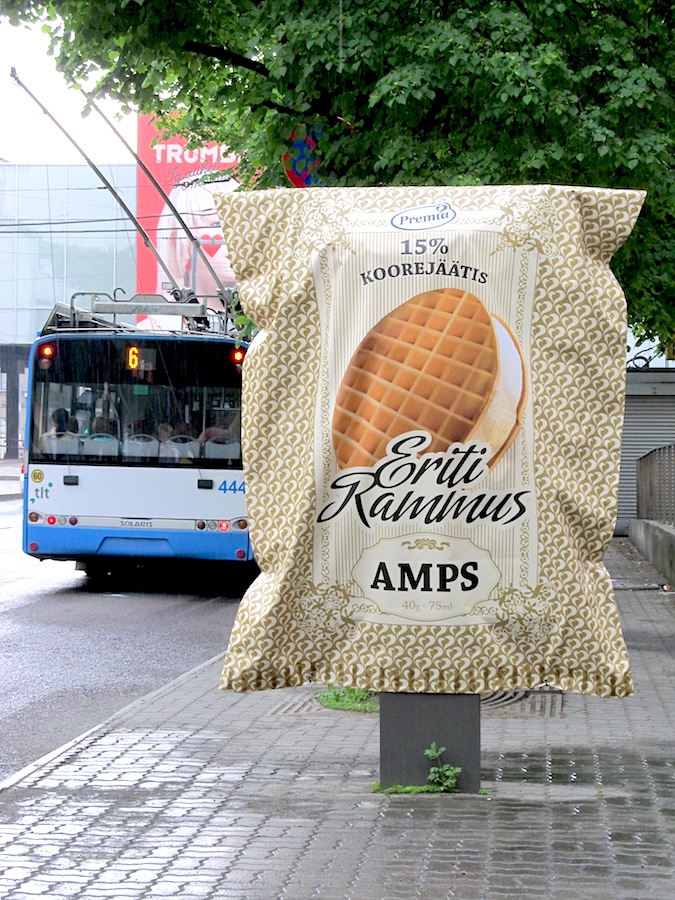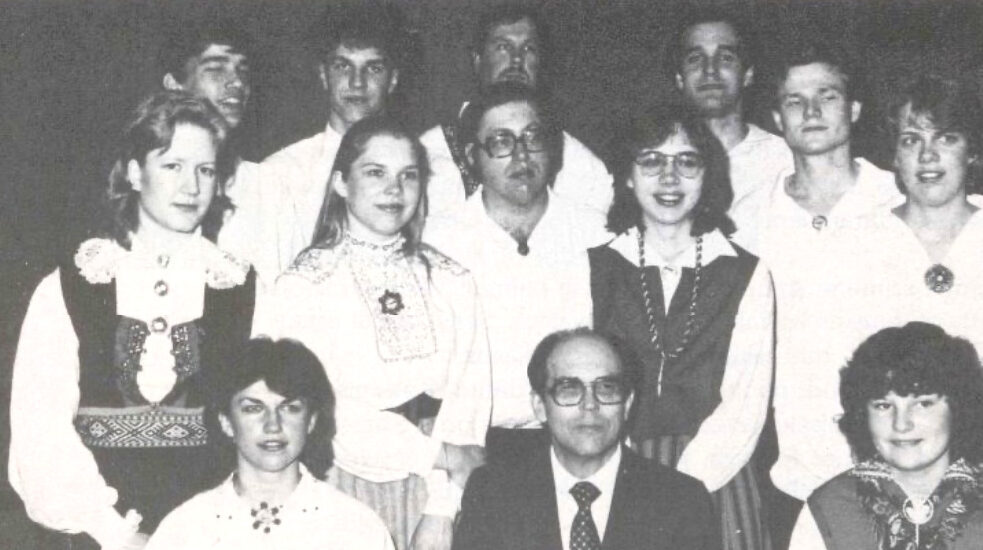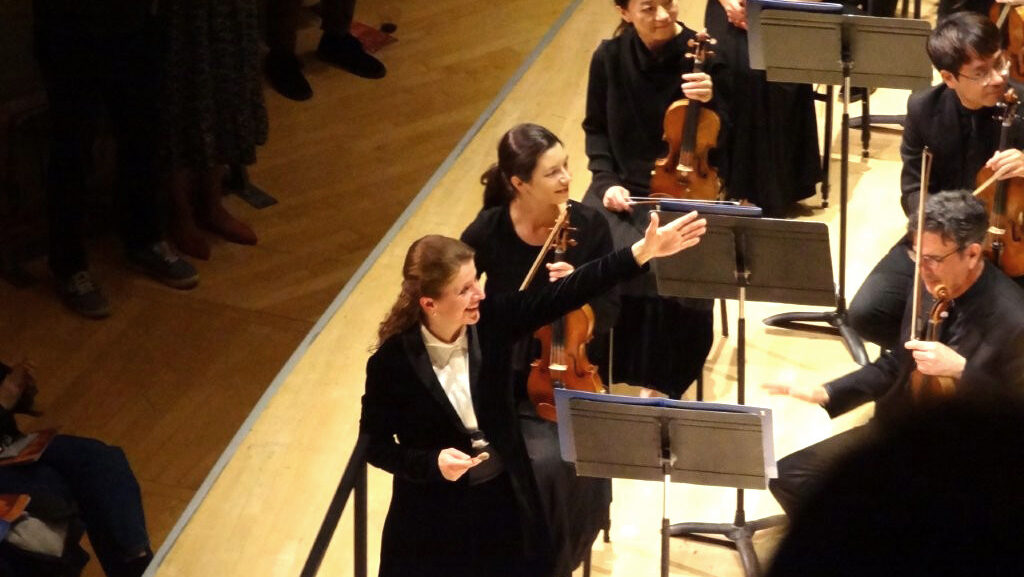The name “eriti rammus” means particularly rich and is the polar opposite of products dubbed “light” and fat-free (rasva/vaba). This brand of jäätis, made by Premia (premiafoods.eu) was originally introduced as cones in vanilli, šokolaadi, ploomi (plum), punase sõstra (red current) and new this year is murakas (cloudberry), the golden raspberry of the far north. Nämma! (Yummy!) Some say nämmu, nämmi or just nämm as well. It all equals tasty and derives from kids-speak, where nämm is a cutesy word for food, often of the chewed variety (nämmutama = to chew long and hard). Tasty = maitsev and appetising = isu/äratav.
A cone is called a vahvel (waffle) or tuutu, from the name of a rolled up paper cone. A smaller cone with a flat bottom is known as a vahvli/tops (waffle cup). A tops is a (usually lightweight) cup, such as the kind used for take-out coffee – kohvi/tops.) Ice cream bars are pulgajäätis (“stick ice cream”) and popsicles or ice pops = pulga/jää (“stick ice”) or mahla/jää (juice ice). Larger packages, such as a liiter or more of jäätis are known as perejäätised or family ice creams.
Although the jäätis in the photo is perched on a pulk for the purposes of advertising, the real thing is actually a circular chunk of ice cream perched between two round vahvlid, as pictured on its wrapper. This is something new in Eesti and in the case of this particular brand has been given the name AMPS. An amps is a bite-size of something nämmi, derived from the sound you make when you devour it; sort of like chomp, munch or crunch. The round ice cream cookie-like treat is actually more than a suu/piste (bite-size) and takes about 5 or 6 ampsud to eat.
When coercing a child to finish their meal, one might say, “Ainult kolm ampsu veel” = Only 3 more bites. When a mouthful enters a baby's mouth, the person feeding him/her tends to say: “Amps! or Ampsti!” as a kind of vicarious cheering-on. “Amps! ja kakuke oli koera kõhus” – Chomp! And the bun was in the dog's tummy. “Palun anna üks amps õuna” – Please give me a bite of your apple.
Jätku jäätist! May there always be enough ice cream.
Riina Kindlam, Tallinn




